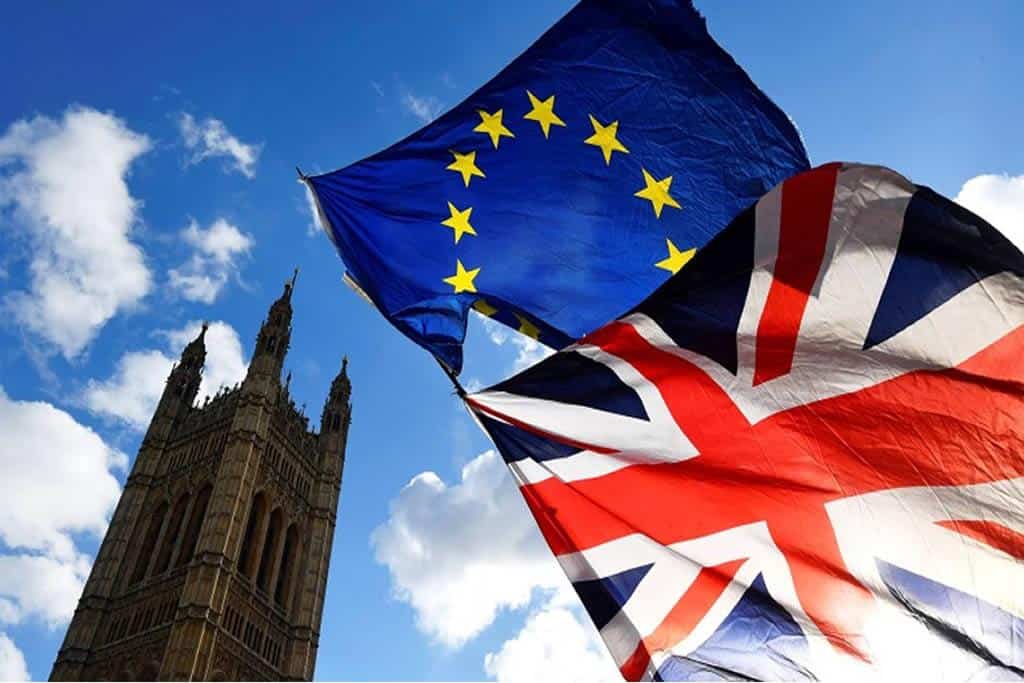
Brussels-London Relationship Talks on Thin Ice
Last updated on February 27th, 2023 at 11:17 am
London-EU relationship talks after Brexit are facing a difficult struggle while the Coronavirus continues to spread in Britain and Europe, killing nearly 110,000 people.
The European Union and the United Kingdom agreed on Monday to call for progress in their ongoing negotiations to determine their future relationship after Brexit, following a long hiatus due to the Covid-19 epidemic that threatens the possibility of an agreement by the end of December.
The negotiation teams met, headed by the French, Michel Barnier on the European side and his counterpart David Frost on the British side, via video conference Monday evening.
After a first round of talks in early March, negotiations were suspended for six weeks. The emerging Corona virus weighed on the course of the talks. It first hit Michel Barnier, then David Frost, before it hit British Prime Minister Boris Johnson, who is currently recovering after being taken to hospital where he was placed in intensive care for days.
“We expect new, constructive talks, aimed at making progress by June,” said a spokesman for the British government.
“We must make progress in all areas. Our goal is to achieve tangible progress by June,” Barnier declared, in a tweet.
Despite the confusion caused by the epidemic, Britain, which emerged from the European Union on January 31, rejected on Monday any extension of the transitional period until after the end of December, increasing the risk of not reaching an agreement regulating the future relationship between the two parties.
The International Monetary Fund Director, Kristalina Georgieva, called for the extension of the deadline, stressing that the “increased uncertainty” caused by the health crisis should be avoided.
Fabian Zoeleg of the European Policy Center confirms that “technical” restrictions on CCTV negotiations and “potential economic repercussions” of failure to reach an agreement “strongly favor the extension”, especially as failure appears to lead to the most Brexit scenario. That is, exit without agreement. “
The shock of the epidemic adds to a fundamentally difficult process in which the two parties were unable to settle their differences on future relations at the conclusion of the first round of talks.
The first issue in dispute is that the British want several agreements (trade relations, fishing) while the European Union wants an agreement in order to advance all issues simultaneously.
For Brussels, there will be no partnership if the issue of fishing is not settled in a “balanced” manner, a subject that threatens to escalate the dispute, as it is considered essential for several member states, especially France and Denmark.
However, the Europeans did not receive the British text on fishing on Monday morning, according to the European source.
The second issue in dispute is the terms of competition that the European Union wants “transparent and fair” to prevent the emergence of an informal economy at its gates. And such conditions require respecting common standards in the fields of economy, labor, environment and taxes in particular, which London rejects, adhering to “control of its own laws.”
Also Read:- How Muslims will celebrate Ramadan amid coronavirus pandemic
“We do not yet know which direction the Europeans and the British will take,” said Eric Morris of the Schuman Foundation. “All data has changed and we do not yet know how it will stabilize by the end of June.”
The two teams will continue their talks this week, with Michel Barnier showing what was reached at a press conference Friday at the conclusion of this second round. The next rounds of negotiations will take place in May and then in early June.




